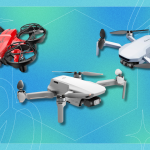Over the past couple of weeks, there were lots of noteworthy news regarding Microsoft and Nintendo, the most recent of which is the 10-year contract they signed yesterday to get Call of Duty on Nintendo platforms, provided that Microsoft finalizes the acquisition of Activision Blizzard.
We were able to pick the brain of MIDiA Research co-founder and senior analyst Karol Severin to get his take on these hot industry topics. Let’s start from the end; here’s his opinion on yesterday’s announcement.
I see this largely as a win-win for all parties involved. Regulators get assurances about any potential ‘threat’ of Call of Duty going exclusive (which, in my opinion, was never really an actual threat anyway – more detail in this article of yours I commented on in the past ).
Microsoft and Activision get to unlock additional audience for Call of Duty (as it wasn’t available on Nintendo Switch). In turn, Nintendo will also unlock a new revenue channel, particularly for the segment of gamers who only own Nintendo hardware. For example, in the UK, approximately 45% of Nintendo hardware users do not use a PlayStation nor an Xbox. (MIDiA Research Q3 2022 survey, n=1,000, 16+ online population, nationally representative to age and gender) So this will likely present a revenue upside for Activision and, ultimately, Microsoft if the acquisition is approved. Of course, this new audience for Call of Duty may also translate to additional value for Microsoft regarding its cloud business in the future if Microsoft decided to take Activision’s cloud services demand away from Google.
Severin still believes the deal will go through and sees the CMA’s provisional findings of endangered competition as part of the process.
I still think the deal should ultimately go through. I see the CMA report as a part of that journey/process. It’s an opportunity to ask for concessions in trying to ensure fair treatment of the consumer and the market. I don’t see this as a major hurdle to the acquisition concluding successfully, though it will take some time. To be absolutely clear, I am not a legal expert by any means. But thus far, I haven’t heard of any significant reasons for why the deal should be stopped. A lot of institutions will be looking at it because of the sheer size of the deal, so it will take time – several parties will want to have their say along the journey.
Going back to Nintendo, the recent stock crash following the latest earnings report surprised many analysts and consumers. According to Severin, it is part of the natural process of an aging console, though the question remains of how Nintendo will offset the lower revenue from hardware sales.
In the recent earnings call, it has been reminded multiple times that Switch is about to celebrate its 7th year of sales – with that in mind, it is only natural to see a slowdown in hardware growth. Besides the cycle, there have been additional headwinds that likely affected Nintendo’s performance as well. For example, Sony seems to have solved much of its supply chain issues and is benefiting from pent-up demand. Simultaneously, the cost of living crisis is going to see consumers making decisions and declaring priorities. Overall, Nintendo has a very successful product line in Switch, approaching the late stages of its commercial lifecycle in an adverse macroeconomic climate. As such, the two key questions to watch for answers for are:
1) Nintendo has a robust active userbase- can it grow through software and in-game/live monetization, and how well can it offset slowing Switch hardware sales, until it comes up with a new hit product?
2) When will it come up with a new hit product, and what will that product be like?
Lastly, we also asked the MIDiA Research senior analyst his take on Microsoft quietly confirming that game sales are indeed affected by a game’s availability on Game Pass.
The fact that the subscription models dilute value/price of individual media assets is no news. It was the case in music, it was the case in video, so not sure why it comes as a surprise to anyone in games.
That said, the report was based on base games sales 12 months after a game was included in Game Pass. When it comes to talking about the business model of subscription services, the real question is how much can you extract over the whole subscription lifetime of a consumer – across all games. Some games will make more under a subscription offering than they would alone, some games will make less.
When it comes to the context of acquiring Activision, this story speaks in favour of the deal rather than against it, in my opinion. If you want to protect the consumer, then the fact that Xbox Game Pass extracted less money from consumers for a game is technically a good thing. If you want to protect the market, it’s less good for some publishers in the industry, good for others. To me, these are just market forces. Publishers and developers who have games that people really want to play will continue to be successful in the subscription era.
We’d like to thank Severin for once again providing his insights and thoughts to Wccftech.
The post Analyst Says Microsoft/Nintendo CoD Deal Is a Win-Win for All, Comments on Game Pass and Slowing Switch Sales by Alessio Palumbo appeared first on Wccftech.







